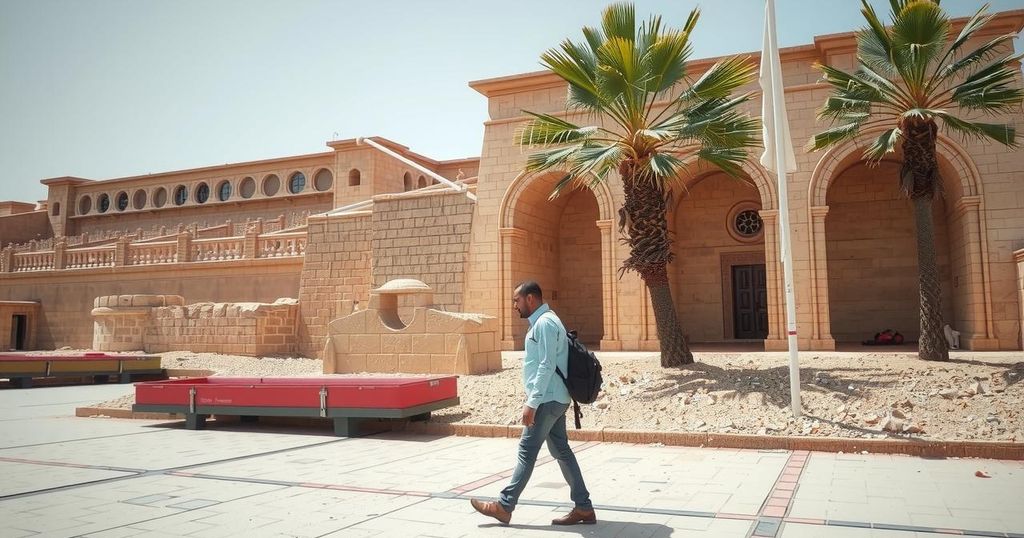Egypt has imposed travel restrictions on Palestinians and Syrians, complicating their already precarious situations as they face separation from family and increased barriers to safe living conditions. Affected individuals recount personal difficulties stemming from these measures, highlighting broader humanitarian implications for communities in exile.
Egypt’s recent travel restrictions on Palestinians and Syrians have exacerbated the challenges these communities face amid ongoing crises. Manal, a Palestinian mother residing in Egypt, was forced into an unexpected and painful separation from her family in Cairo after an anticipated visit to Libya ended with her being barred from returning to Egypt. Her lament reflects the plight of many who fled conflict, only to confront new hardships due to stringent travel measures. These restrictions prevent not only Palestinians living abroad from entering Egypt but also limit Syrians who are similarly affected.
The Egyptian authorities’ decision comes amid a backdrop of political instability, particularly after the fall of the Assad regime in Syria. For many Palestinians and Syrians, these new regulations add to hardships stemming from prior conflict and the continued absence of adequate legal status or economic opportunities. In total, over 100,000 Palestinians and approximately 1.5 million Syrians reside in Egypt, many without the means to secure work or residency.
As expressed by many affected, these travel bans inflict psychological hardships alongside practical barriers, illustrating broader humanitarian concerns. One Palestinian man underscored the weight of living under siege: “We are a people who only want to live. If there were no war in Gaza, we would not have left it.” The new policies thus not only impose direct restrictions on mobility but deepen the trauma for individuals caught in cycles of conflict and dislocation.
Witnesses like Mohammed, a Syrian resident, narrate personal tales of unexpected separation from families due to the policies, emphasizing their struggle to navigate legal systems that seem increasingly unwelcoming. The emotional toll becomes evident, as families are torn apart and individuals are left uncertain about their futures in hostile environments. Overall, the Egyptian government’s recent actions highlight significant humanitarian challenges faced by these groups.
The impact of Egypt’s travel restrictions on Palestinians and Syrians can be traced back to a complex history marked by conflict and political instability in the Middle East. A significant number of Palestinians fled to Egypt following wars and conflicts, with many struggling due to inadequate legal residency status and economic hardships. Similarly, Syrians have sought refuge from the devastation of their homeland, only to face new regulatory challenges as the Egyptian government tightens entry standards in response to ongoing regional turbulence. These regulations not only affect people’s ability to travel but also contribute to psychological and social strife, compounding the crises they’ve already endured. The new policy that began in early 2025 demands security approval for all Palestinians entering Egypt from various countries, alongside prohibitions against Syrians from various nations attempting to visit. These measures add an additional layer of difficulty for those already displaced, thereby raising concerns about their fundamental rights and the humanitarian implications of such restrictions.
In conclusion, Egypt’s travel restrictions have exacerbated the challenges faced by Palestinians and Syrians living in exile, deepening their psychological and emotional burdens while limiting their mobility and opportunities for family reunification. These policies represent not only a shift in regional governance towards increased control but also resonate with broader humanitarian and rights-based concerns for displaced communities. The evident human toll on individuals seeking safety and stability underscores the urgent need for policy reassessment. Engagement with international and local advocacy may be necessary to address these pressing issues and promote better understanding and support for these vulnerable populations.
Original Source: www.newarab.com






